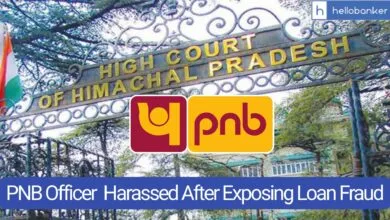RBI Fines HSBC for Violating Credit Card Rules

| Get instant news updates: Click here to join our Whatsapp Group |
The Reserve Bank of India (RBI) has fined The Hongkong and Shanghai Banking Corporation Limited (HSBC) Rs 29.6 lakh for not following certain rules related to credit cards. This penalty was imposed on June 24, 2024.
What are the guidelines for credit cards?
The RBI has guidelines for how banks handle credit cards, including how they calculate the minimum amount you must pay each month, known as the minimum payment due. This minimum payment is the least amount you need to pay on your credit card bill each month to avoid late fees and penalties. It is typically a percentage of your total outstanding balance.
What did HSBC do wrong?
According to the RBI, HSBC failed to ensure that a specific calculation method, designed to prevent credit card debt from growing faster than it can be paid off, was being followed in some accounts. The RBI found that HSBC’s method for calculating the minimum payment due in some cases resulted in “negative amortization.” This means that the outstanding balance on the credit card actually increased, even though the cardholder made the minimum payment. This can happen when interest charges and other fees are added to the balance faster than the minimum payment can reduce it.
What is negative amortization?
Negative amortization can trap cardholders in a cycle of debt. Even if they make their minimum payments every month, the total amount they owe keeps going up. This makes it very difficult to ever pay off the credit card balance.
How does negative amortization work?
To understand negative amortization, let’s imagine you have a credit card with a balance of Rs. 10,000 and a minimum payment due of Rs. 1,000 each month. If the interest rate on your credit card is 2% per month, the interest charged on your Rs. 10,000 balance for the month would be Rs. 200 (Rs. 10,000 x 2%).
If the bank follows the RBI rule, they would subtract the Rs. 1,000 minimum payment from your balance before calculating the next month’s interest. So, your new balance would be Rs. 9,000 (Rs. 10,000 – Rs. 1,000). In the next month, the interest would be calculated on the remaining Rs. 9,000 balance, which would be slightly lower (around Rs. 180). This way, even though you’re only paying the minimum amount, your balance gradually reduces over time because the interest is calculated on a smaller amount each month (positive amortization).
However, if the bank doesn’t follow the RBI rule, they might simply add the interest (Rs. 200) to your existing balance without subtracting your minimum payment. This would make your new balance Rs. 10,200 (Rs. 10,000 + Rs. 200 interest). In the next month, the interest would be calculated on the higher balance of Rs. 10,200, leading to a slightly higher interest charge (around Rs. 204). This creates a situation where even though you’re making the minimum payments, your balance keeps increasing due to interest charges snowballing (negative amortization). This makes it very difficult to pay off your credit card debt completely.
Why did the RBI fine HSBC?
The RBI’s action is focused on ensuring that banks follow the rules to protect consumers. The fine imposed on HSBC doesn’t necessarily mean that individual customers were directly affected. However, if you’re an HSBC credit cardholder, it’s a good idea to review your past statements and make sure your minimum payment due has been calculated correctly.
If you suspect an error in your minimum payment calculation, contact HSBC customer service immediately. You can also file a complaint with the RBI if you believe the bank is not following the rules.
What is the RBI’s goal?
The RBI wants to ensure that credit cards are used responsibly. By making sure the minimum payment covers at least the interest charges, it helps prevent credit card debt from spiraling out of control. HSBC’s failure to follow this rule could have put some customers at risk of accumulating more debt than they could manage.
What are the consequences for HSBC?
The fine imposed by the RBI is for rule violations identified during a routine inspection. The penalty doesn’t affect the validity of any transactions you’ve made with HSBC. The RBI can take further action against HSBC if needed.
